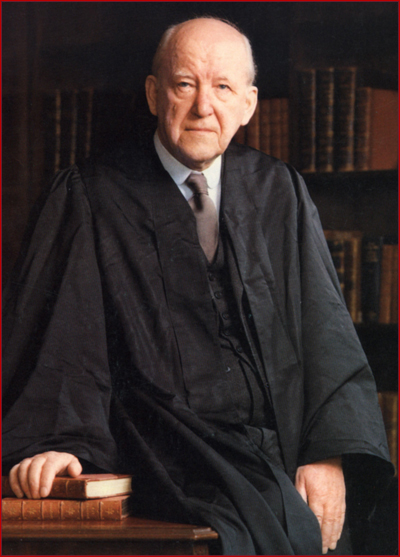by Frank Turk

After much waiting and a very severe lack of time for me in the last two weeks, finally we get to Pastor Tim Keller's paper, available at the BioLogos website, regarding "Creation, Evolution, and Christian Laypeople." Let me say this clearly: I think the people who run BioLogos didn't actually read this paper. In fact, I think a lot of people who have criticized this paper have not read this paper, so have a synopsis of the work itself with some analysis, and then come closing remarks.
Keller wisely breaks the paper up into clear subheadings:
1. What's the Problem?
2. Pastors and people
3. Three Questions of Laypeople
4. Concluding Thoughts
Keller defines the problem as he sees it precisely:
Many believers in western culture see the medical and technological advances achieved through science and are grateful for them. They have a very positive view of science. How then, can they reconcile what science seems to tell them about evolution with their traditional theological beliefs?
And as I blogged last week, there's no reason to think it's either science or religion -- it's entirely right-minded to see science as a tool which man uses in his God-ordained place to be in dominion over the world.
In his second section, Keller also wisely sees the problem as having four main points of difficulty for orthodox protestants: Biblical authority; the confusion of biology and philosophy (I would say the problem is "conflation", but let Keller have his own say here); the historicity of Adam and Eve; and the problem of evil. And the reason for his lining out of these problems is explicitly
pastoral -- that is, these are the questions real people have when they come to their pastors because we live in a world where science is seen as somehow prophetic, somehow authoritative and able to speak to all things when in fact it only speaks to a few. But as he moves to the three main questions these four points of difficulty make obvious, Pastor Keller says this:
if I as a pastor want to help both believers and inquirers to relate science and faith coherently, I must read the works of scientists, exegetes, philosophers, and theologians and then interpret them for my people. Someone might counter that this is too great a burden to put on pastors, that instead distilling and understanding the writings of scholars in various disciplines, how will our laypeople do it? This is one of the things that parishioners want from their pastors. We are to be a bridge between the know that there has ever been a culture in which the job of the pastor has been more challenging. Nevertheless, I believe this is our calling.
And he's right: it is actually part of the pastoral calling to be a voice of discernment for the people he is shepherding -- and sometimes that's going to including knowing more than what's printed on the page of the English Bible. We call that "apologetics" in most church circles -- and it's a godly pursuit when followed for pastoral reasons.
So here are his three questions:
1. If God used evolution to create, then we can't take Genesis 1 literally, and if we can't do that, why take any other part of the Bible literally?
2. If biological evolution is true, does that mean that we are just animals driven by our genes, and everything about us can be explained by natural selection?
3. If biological evolution is true and there was no historical Adam and Eve how can we know where sin and suffering came from?
Before covering his answers to these questions, let me suggest something: the first significant error in this paper is that Pastor Keller is being too simplistic in the answers he gives to these questions. For example, his answer to question 1 doesn't address at all that, in spite of the alleged "genre" Genesis, the most time-honored and ancient reading of Genesis 1 is that
this is the history of creation and not some other liturgical/poetic section of Scripture intended to convey "Truth" but not actually describe any true things.
What Pastor Keller does in answering these questions has a
pastoral motive -- but it also has another motive which I would suggest is competing with his better angel, and that's the motive to speak to the fears inherent in unbelief.
So in answering the question of whether we can take any of the Bible "literally" if Gen 1 is not "literal", Pastor Keller forgets to include the copious references
from the rest of the Bible to Genesis 1 which make it clear that God created in
days, and that these days formed our concept of the
week, and that his rest at the end of it created the
sabbath. He forgets the copious references in OT and NT to Adam as a person who lives in a lineage which leads to Jesus. He forgets that the Serpent in the garden is the father of all lies, and was a murderer from the beginning. Instead he gives an alternative explanation for Genesis 1-3 which is meant to allay fear in the supernatural aspect of the events, and to appeal to people who have other intellectual commitments. I find this interesting from a fellow who speaks so vibrantly elsewhere on the subject of the Gospel destroying our idols.
In the second question, he then turns to the problem which his first question actually creates: that is, doesn't factual evolution trump literary or poetical conceit? Doesn't the fact that man is an animal like all the other animals (rather than the special creation who was given to name all the animals) make man morally just another animal? Keller's answer here is not very convincing -- even if its pastoral stripes show.
His answer is that it's actually only a prior commitment to
naturalism which makes this logic necessarily true. He references Plantinga on this point, and says that "Christian pastors, theologians, and scientists who want to argue for an [evolutionary process] account of origins must put a great deal of emphasis at the same time on arguing against [grand evolutionary theory]." But the question he leaves unanswered then is "why?" Why argue for the evolutionary process as the one which produces both chimps and Pastor Kellers only to say, "but that doesn't mean anything metaphysically?"
The argument to go there, he says, looks like this:
Does natural selection (alone) give us cognitive faculties (sense perception, rational intuition about those perceptions, and our memory of them) that produce true beliefs about the real world? In as far as true belief produces survival behavior, yes. But who can say how far that is? If a theory makes it impossible to trust our minds, then it also makes it impossible to be sure about anything our minds tell us-‐-‐including macro-‐evolution itself-‐-‐ and everything else. Any theory that makes it impossible to trust our minds is self-‐defeating.
It's one of those arguments, as they say, which destroys the village in order to capture the village. Sure: it's sort of a classic presuppositional argument which may be logically flawless, but it is also one of those arguments too smart by half which leaves most people feeling like you're trying way too hard.
What if you said instead, "well, it seems to me that if I have to posit the supernatural anyway to be epistemologically-sure that my perceptions of my personhood are true, I'll trust the whole shootin' match for meaning to what God has said -- and then science can then be my servant rather than a competing master."
The reason to say that, btw, is to avoid having to say what Pastor Keller says in his third Q & A. But before we get to his third answer, we should read carefully his disclaimer:
I find the concerns of this question much more well-‐grounded. Indeed, I must disclose, I share them. Many orthodox Christians who believe God used EBP to bring about human life not only do not take Genesis 1 as history, but also deny that Genesis 2 is an account of real events. Adam and Eve, in their view, were not historical figures but an allegory or symbol of the human race. Genesis 2, then, is a symbolic story or myth which conveys the truth that human beings all have and do turn away from God and are sinners.
See: this is perhaps the key reason I think that maybe the folks at BioLogos didn't read this paper very carefully: Tim Keller believes that Adam was a real guy, the first man after which the race was named.
And his concern here is for exactly the right reasons: he fears that discounting the historicity of Adam will impact our belief in the trustworthiness of Scripture. He fears that the problem of sin and the solution of salvation in Christ will be ruined into mythology and not
real and present facts of human existence.
Isn't that a bizarre thing to say after answering as he did his Q#1? Why lay the groundwork for the
antithesis of a belief in a historical Adam if in fact you see Adam and his sin as the
lynch pin of the theology of human fallenness and a need for a savior?
But that objection aside regarding Q1 and Q2, Pastor Keller is exactly right in his answer to Q3 -- and in that, the curators of BioLogos need to think hard about the solution to the problem he is posing. Tim Keller is not posing the same problem they are -- because he doesn't see Gen 2-3 as myth but as "high history". So the solution
He is posing does not work for the problem
BioLogos is posing.
Now: to overcome all the baggage Keller has essentially stipulated to in Q1 and Q2, he resorts to the theological hypotheses of Derek Kidner to reconcile evolution to the fall of Adam. But does this actually buy either of them more credibility in the world of process evolution advocates? In Kidner's view, Adam was taken from among the "tool users" who has evolved and given the gift of
imago Dei, and then
God uses special creation to make Eve! That is, God makes Eve from Adam as it says, but Adam was not made from the red clay but from a lesser primate.
I wonder if someone who accepts the biological explanation for evolution will find that more credible than what it actually says in the Bible -- or if any of the BioLogos advocates would buy Kidner/Keller's exegesis here as more compelling than what Al Mohler would have to say about these passages. And in that, I wonder if someone who has accepted Pastor Keller's answers to Q1 and Q2 wouldn't feel somewhat put upon to accept the answer to Q3 -- because the question of God's supernatural power has only been shifted from Day 1 to Day 6.

So what are Pastor Keller's concluding thoughts? He says it plainly: "We must interpret the book of nature by the book of God." However, he also states plainly "Christians who are seeking to correlate Scripture and science must be a 'bigger tent' than either the anti‐scientific religionists or the anti-‐religious scientists."
If we are serious to do what Tim Keller says to do -- and use Scripture as the governing authority over what we observe in the world, especially when we are talking about the fundamental
metaphysicaland
ethical conditions man finds himself in -- then the potential solutions he poses here are not really sufficient to meet the task. But the interesting thing is that they are supported by the tribe at BioLogos as somehow compatible with their view of science and religion.
Do you think they read this paper? I don't think they did. But if they did, I think their motives are an interesting case study. We'll talk about that next week. You probably won't wait that long and will unload your conspiracy theories in the comments.
Have at it.


 t one of the memorable gatherings under "The Question Oak," a student asked Mr. Spurgeon, "Are we justified in receiving Mr. Darwin's or any other theory of evolution?"
t one of the memorable gatherings under "The Question Oak," a student asked Mr. Spurgeon, "Are we justified in receiving Mr. Darwin's or any other theory of evolution?"


 o rarely do I find anything worth recommending at The Huffington Post that when something good does show up over there, it's almost a disorienting experience for me.
o rarely do I find anything worth recommending at The Huffington Post that when something good does show up over there, it's almost a disorienting experience for me.
 But it's doubly ironic when you realize that there's a droning nest of nattering voices over at Biologos
But it's doubly ironic when you realize that there's a droning nest of nattering voices over at Biologos 





 f all the philosophers in the world should contradict the Scriptures, so much the worse for the philosophers; their contradiction makes no difference to our faith. Half a grain of God’s word weighs more with us than a thousand tons of words or thoughts of all the modern theologians, philosophers, and scientists that exist on the face of the earth; for God knows more about his own works than they do. They do but think, but the Lord knows.
f all the philosophers in the world should contradict the Scriptures, so much the worse for the philosophers; their contradiction makes no difference to our faith. Half a grain of God’s word weighs more with us than a thousand tons of words or thoughts of all the modern theologians, philosophers, and scientists that exist on the face of the earth; for God knows more about his own works than they do. They do but think, but the Lord knows.
 Instead, Biologos says explicitly, "
Instead, Biologos says explicitly, "
 After much waiting and a very severe lack of time for me in the last two weeks, finally we get to Pastor Tim Keller's paper, available at the BioLogos website, regarding "Creation, Evolution, and Christian Laypeople." Let me say this clearly: I think the people who run BioLogos didn't actually read this paper. In fact, I think a lot of people who have criticized this paper have not read this paper, so have a synopsis of the work itself with some analysis, and then come closing remarks.
After much waiting and a very severe lack of time for me in the last two weeks, finally we get to Pastor Tim Keller's paper, available at the BioLogos website, regarding "Creation, Evolution, and Christian Laypeople." Let me say this clearly: I think the people who run BioLogos didn't actually read this paper. In fact, I think a lot of people who have criticized this paper have not read this paper, so have a synopsis of the work itself with some analysis, and then come closing remarks.

 So what are Pastor Keller's concluding thoughts? He says it plainly: "We must interpret the book of nature by the book of God." However, he also states plainly "Christians who are seeking to correlate Scripture and science must be a 'bigger tent' than either the anti‐scientific religionists or the anti-‐religious scientists."
So what are Pastor Keller's concluding thoughts? He says it plainly: "We must interpret the book of nature by the book of God." However, he also states plainly "Christians who are seeking to correlate Scripture and science must be a 'bigger tent' than either the anti‐scientific religionists or the anti-‐religious scientists."
 See: Science is worried about
See: Science is worried about  I see Science like a really amazing dog: he can do a lot of stuff when he’s trained the right way, but if you give him the run of the house, he’ll be teaching you all kinds of stuff that, let’s be honest, you otherwise wouldn’t be caught dead doing. I had some great examples of that which I thought would make a great title for this post, but I'll spare your the vulgarities.
I see Science like a really amazing dog: he can do a lot of stuff when he’s trained the right way, but if you give him the run of the house, he’ll be teaching you all kinds of stuff that, let’s be honest, you otherwise wouldn’t be caught dead doing. I had some great examples of that which I thought would make a great title for this post, but I'll spare your the vulgarities.
 t is a very great sin on the part of Christian soldiers, to make false alarms to discourage and dispirit their fellow-soldiers. There are some professors who seem to delight to tell us of a new discovery in science which is supposed to destroy our faith. Science makes a wonderful discovery, and straightaway we are expected to doubt what is plainly revealed in the Word of God.
t is a very great sin on the part of Christian soldiers, to make false alarms to discourage and dispirit their fellow-soldiers. There are some professors who seem to delight to tell us of a new discovery in science which is supposed to destroy our faith. Science makes a wonderful discovery, and straightaway we are expected to doubt what is plainly revealed in the Word of God.

 ere's an audio clip well worth listening to—especially in light of our recent posts about BioLogos and the growing pressure to abandon the biblical account of creation in favor of an evolutionary narrative:
ere's an audio clip well worth listening to—especially in light of our recent posts about BioLogos and the growing pressure to abandon the biblical account of creation in favor of an evolutionary narrative:



 and thence suffer the least disturbance from their mutual attractions. This most beautiful System of the Sun, Planets, and Comets, could only proceed from the counsel and dominion of an intelligent and powerful being. And if the fixed Stars are the centers of other like systems, these, being form'd by the like wise counsel, must be all subject to the dominion of One; especially since the light of the fixed Stars is of the same nature with the light of the Sun, and from every system light passes into all the other systems. And lest the systems of the fixed Stars should, by their gravity, fall on each other mutually, he hath placed those Systems at immense distances from one another.
and thence suffer the least disturbance from their mutual attractions. This most beautiful System of the Sun, Planets, and Comets, could only proceed from the counsel and dominion of an intelligent and powerful being. And if the fixed Stars are the centers of other like systems, these, being form'd by the like wise counsel, must be all subject to the dominion of One; especially since the light of the fixed Stars is of the same nature with the light of the Sun, and from every system light passes into all the other systems. And lest the systems of the fixed Stars should, by their gravity, fall on each other mutually, he hath placed those Systems at immense distances from one another.
 ast month several regular contributors over at the BioLogos blog wrote a series of posts exploring the question
ast month several regular contributors over at the BioLogos blog wrote a series of posts exploring the question  Evidently, the gentlemen at BioLogos have finally settled on their best strategy for replying to Dr. Mohler:
Evidently, the gentlemen at BioLogos have finally settled on their best strategy for replying to Dr. Mohler:  I'm not exaggerating. Giberson loaded his Huffington article with just about every accusation and insult space would allow. He stops just short of making Mohler out to be a felon. Giberson alleges that Mohler "does not seem to care about the truth and seems quite content to simply make stuff up when it serves his purpose." "Perhaps [Mohler's] only real encounter with Saving Darwin was an instruction to an assistant to 'find something in Giberson's book that I can ridicule in my speech.'" "Mohler perhaps, is being a 'faith fibber,' something I have been guilty of, although not on this scale." "I am disappointed to realize that [skeptic Michael] Shermer, who repudiated his faith, has more respect for the truth than Al Mohler, who views himself as a caretaker of a faith that I share."
I'm not exaggerating. Giberson loaded his Huffington article with just about every accusation and insult space would allow. He stops just short of making Mohler out to be a felon. Giberson alleges that Mohler "does not seem to care about the truth and seems quite content to simply make stuff up when it serves his purpose." "Perhaps [Mohler's] only real encounter with Saving Darwin was an instruction to an assistant to 'find something in Giberson's book that I can ridicule in my speech.'" "Mohler perhaps, is being a 'faith fibber,' something I have been guilty of, although not on this scale." "I am disappointed to realize that [skeptic Michael] Shermer, who repudiated his faith, has more respect for the truth than Al Mohler, who views himself as a caretaker of a faith that I share."










